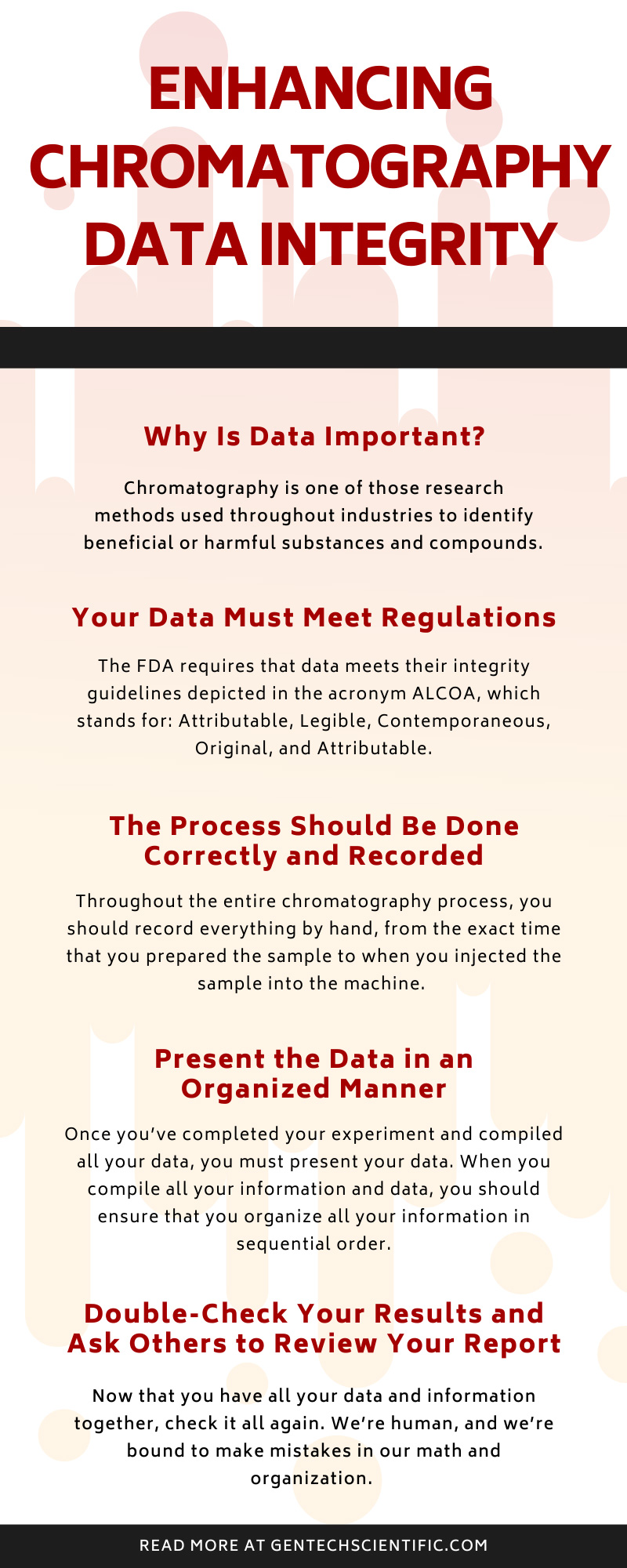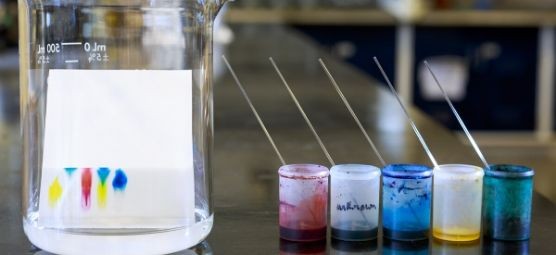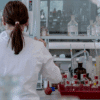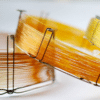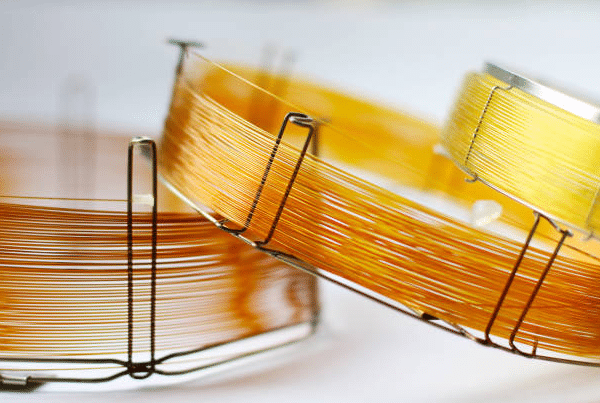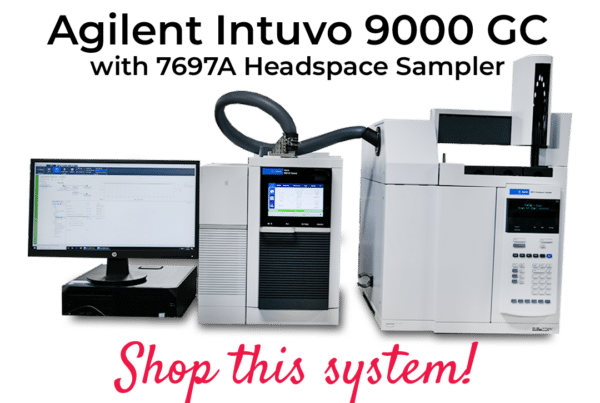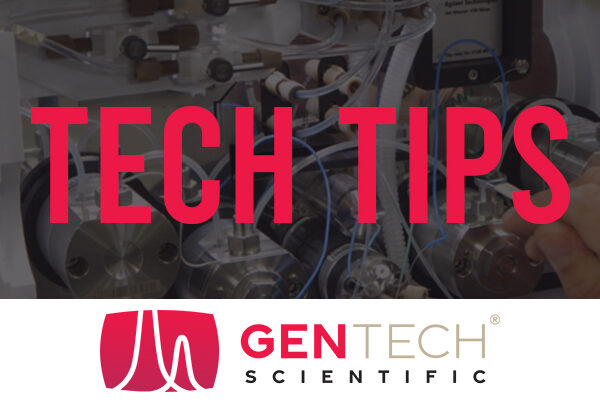Scientists in several industries, such as forensics, pharmaceuticals, food science, and petrochemicals, are always searching for the next scientific breakthrough. One of the ways they come across findings is through methods such as chromatography—which is a technique used in labs to separate the compounds within a mixture. Chromatography has improved significantly over the years and has since become a widely accepted research tool. However, we all know that science requires hard proof. Many of us prove our points by showing data, which is why we will discuss enhancing chromatography data integrity below.
Why Is Data Important?
Chromatography is one of those research methods used throughout industries to identify beneficial or harmful substances and compounds. The pharmaceutical industry uses chromatography almost daily because of its accurate depiction of compounds. That said, pharmaceutical scientists have a challenging job because their research indicates if a new drug will be safe or not. Scientists are in charge of providing accurate and credible data that proves their findings because a slight variation in findings could be a devastating result in an individual’s health. In other words, the data and research must be accurate.
Your Data Must Meet Regulations
In addition to the health of individuals, the data must be accurate because pharmaceutical scientists submit their findings to the US Food and Drug Administration for review. The FDA requires that data meets their integrity guidelines depicted in the acronym ALCOA, which stands for: Attributable, Legible, Contemporaneous, Original, and Attributable. In other words, you should be able to show where you got your data from, the equations used to come up with your numbers, and the original transcript of data. Failure to meet any one of these points in ALCOA will result in the FDA denying your request and likely determine your data to be untrue.
The Process Should Be Done Correctly and Recorded
In most cases, the lab’s most experienced scientist will prepare samples and do all the testing. The reason for this is to ensure accuracy. For instance, if a less experienced lab technician prepares the sample and conducts the experiment, there is a higher possibility of error. That said, to avoid inaccurate data and mistakes, the sample that scientists will test must be prepared correctly. In addition, the chromatography machine must be in good working order to ensure the process isn’t flawed. Furthermore, the FDA will expect scientists to complete all the appropriate steps of chromatography to ensure the most accurate conclusion. Throughout the entire chromatography process, you should record everything by hand, from the exact time that you prepared the sample to when you injected the sample into the machine. Additionally, you should include information such as the timing of each step in the chromatography process. The detector in the chromatography machine will help you monitor some of this information, but try to keep up by hand if you can. We would suggest making a spreadsheet with all your main points in separate columns, then print the spreadsheet. Otherwise, your notes will be illegible, which is both not helpful and a waste of your time.
Present the Data in an Organized Manner
Once you’ve completed your experiment and compiled all your data, you must present your data. However, how you present your data is equally as important as the data itself. Let us explain. Picture someone asking you to approve something that could be beneficial to you and others, but their data is unorganized, and you can’t decipher how they got their numbers. A wise person, in this case, would deny the request simply because the data isn’t clear, and figures don’t seem to add up. Why would you approve something that does not make sense?
The same goes for chromatography data that can help officials make momentous decisions. When you compile all your information and data, you should ensure that you organize all your information in sequential order. Once you have all the data organized, you need to ensure that all your numbers add up and make sense. Additionally, not everyone is an intelligent scientist, so for clarity’s sake, include all your formulas to show how you reached the numbers you’re presenting. Furthermore, include all your notes and details that spell out the process and timing of your experiment. By showing the process details, it eliminates any skepticism around the order of process and timing.
Double-Check Your Results and Ask Others to Review Your Report
Now that you have all your data and information together, check it all again. We’re human, and we’re bound to make mistakes in our math and organization. Plus, you don’t want the FDA to remember your lab as the lab with unorganized reports and inaccurate data. Especially if you’re working on potentially groundbreaking findings. If officials can’t easily follow your process to the results, they likely won’t agree with your conclusion. One way to ensure your data and report are easily readable is by asking your colleagues to review your report and mark any notes. Regardless of how many times you review your own work, you will miss something.
So whether you’re looking to prepare your lab for a groundbreaking experiment or you’re putting together a report for a completed experiment, enhancing your chromatography data integrity matters. By ensuring your final report is easily understood and meets any regulations, you will improve the chances of approval. Keep in mind that no approval process is fast, though. Companies may request further tests, government agencies may require additional information, and in some cases, you may have to start your experiments over again. However, before you can accurately compile data, you need premium scientific equipment. You can save money on lab equipment by purchasing high-quality refurbished scientific equipment through GenTech Scientific.
Just as you take your data integrity seriously, GenTech Scientific takes product and service integrity seriously. Though our story began with servicing lab equipment, we realized that we could benefit customers by refurbishing lab equipment to the original specifications. Since we refurbish all the equipment we sell, we’re able to offer personalized customer service because we intimately know your particular machine. Contact us today for more information.
